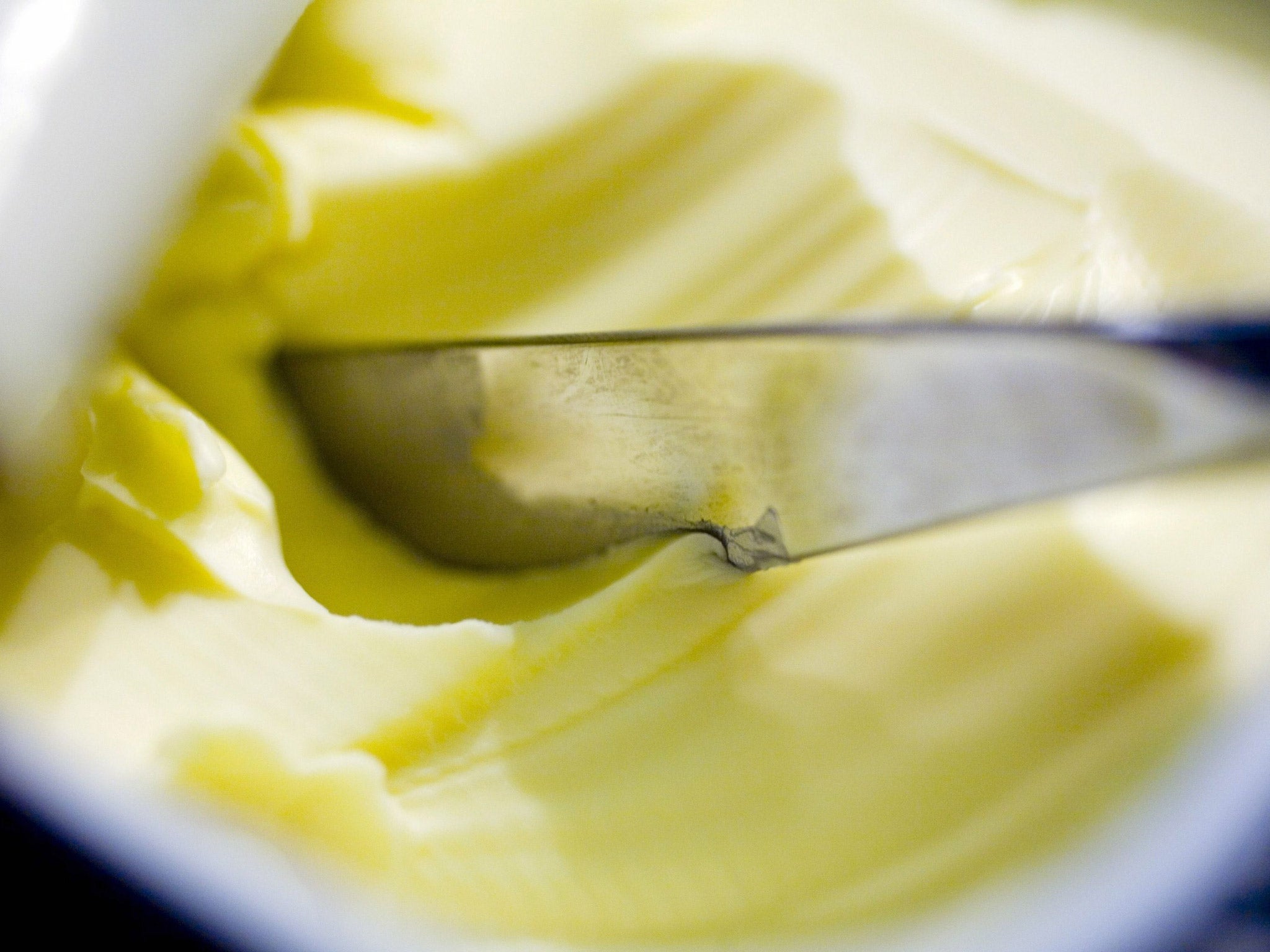Start spreading the news - saturated fat 'is not so bad,' says study
US research suggests that margarine might have been more harmful than butter and lard all along

For 50 years we have been told to cut down on lard and butter while eating more sunflower oil and margarine.
The dietitians’ rule of thumb has been saturated animal fat = bad, polyunsaturated vegetable fat = good
But now US scientists are questioning the conventional wisdom, and asking whether margarine might have been more harmful for us all along.
Cutting down on saturated animal fat lowers cholesterol and thus reduces the risk of heart attack. However, the new analysis of a study conducted in the late 1960s and early 1970s, some of the data from which had been missing for decades, has revealed that people who followed the standard advice and substituted margarine in place of butter died sooner than those who made no change to their diet.
The researchers from the National Institutes of Health in the US say in the British Medical Journal that their findings could have “important implications for worldwide dietary recommendations.”
The US scientists decided to re-investigate a heart study conducted in Sydney, Australia, between 1966 and 1973, because it was the only randomised controlled study to examine the impact of increasing consumption of omega 6 polyunsaturated fatty acid, also known as linoleic acid.
Linoleic acid – omega 6 – is the most prevalent polyunsaturated fat in most Western diets and is found in high amounts in vegetable oils such as corn, sunflower, safflower and soybean and in margarines made from these oils.
Most studies of dietary interventions have involved multiple changes. The Sydney heart study was the only one to look specifically at the effect of increasing intake of omega 6.
The study was conducted among 458 men aged 30 to 59 who had recently had a heart attack, half of whom were advised to cut their animal fat consumption and replace it with safflower oil and safflower oil margarine. They were followed for over three years and the results, published in the British Medical Journal, showed that those who ate more safflower oil had a higher risk of death from all causes, including from heart disease.
In an editorial, Professor Philip Calderwood from the University of Southampton said the findings argued against the “saturated fat bad, omega 6 good” dogma.
But the study was roundly criticised by other experts. Professor Tom Sanders, head of the nutritional sciences division, Kings College, London, said it was “enormously underpowered,” of “little relevance to diets today” and its findings had been refuted by recent better studies.
Brian Ratcliffe, professor of nutrition at Aberdeen University, said: “This paper does not provide evidence for changes to the current recommendations for a healthy diet.” It was already known that a healthy diet involved striking a balance between omega 3 and omega 6 fatty acids and that diets in developed countries were too imbalanced in favour of omega 6.
Catherine Collins, principal dietitian at St George’s hospital, London, said understanding of the link between diet and heart disease had become “much more sophisticated” in the 40 years since the study was conducted.
“Our diet is now naturally higher in mono-unsaturates (olive oil and rapeseed oil) which is protective against omega-6 fats, but for the older generation who still choose polyunsaturated margarines, and fry foods regularly in corn or sunflower oils, a change to ‘vegetable oil’ (rapeseed oil) is all that is necessary to limit risk from linoleic acid,” she said.
History: Butter vs margarine
A staple of the Northern European diet for more than 1,000 years, butter is made by churning fresh cream or milk, and is used in numerous types of cooking. But today it is considered unhealthy due to its high saturated-fat content.
The development of an alternative began with French chemist Michel Eugène Chevreul’s discovery of margaric acid in 1813. Another French chemist, Hippolyte Mège-Mouriès, invented oleomargarine, which became shortened to margarine in 1869. Margarine is made of vegetable fats and was thought to be lower in cholesterol and saturated fats than animal products.
Sam Masters
Join our commenting forum
Join thought-provoking conversations, follow other Independent readers and see their replies
Comments